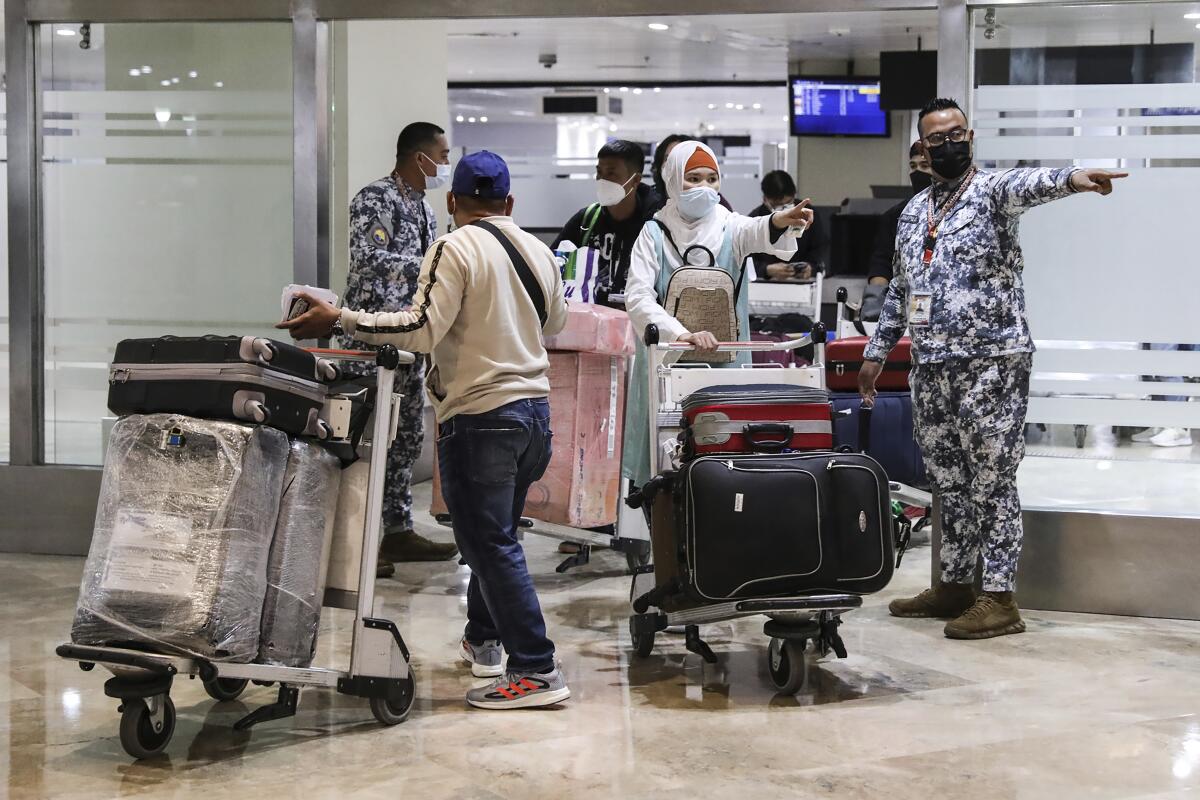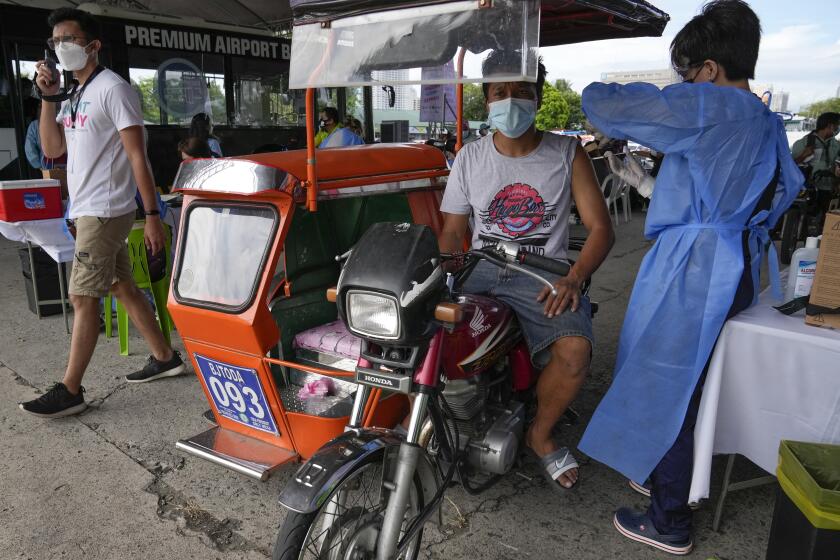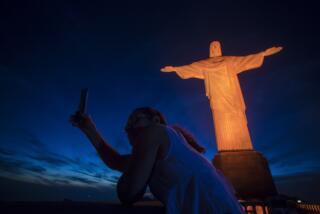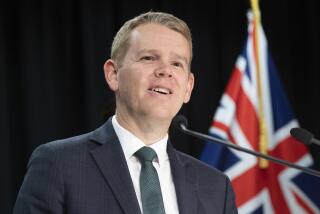Philippines welcomes back foreign visitors after 2 years of COVID border closures

- Share via
MANILA — The Philippines lifted a nearly two-year ban on foreign travelers Thursday in a boost for its tourism and related industries as an Omicron-variant-fueled coronavirus surge eases.
Foreign travelers from 157 countries with visa-free arrangements with the Philippines who have been fully vaccinated and test negative for the coronavirus will be welcomed back and will no longer be required to quarantine upon arrival. The government also ended a risk-classification system that banned travelers from the worst-hit countries.
“We will begin the next chapter in the road to recovery,” Tourism Secretary Berna Romulo-Puyat said. She added that the border reopening would restore jobs and generate revenue across tourism-related enterprises and communities.
British tourist Ian Collins said at the airport arrival lobby that he flew back after two years because he “absolutely loved” the Philippines and wanted to reunite with Filipino friends.
“It’s just a wonderful country. I’m so glad that you’re open again,” the 60-year-old Collins said.
Malaysian tourist Shaun James Stickney said the pandemic separated him and his Filipina partner for two years, so he took the first flight to Manila when the Philippines reopened to reunite with her and, “God willing, get married.”
Philippine President Rodrigo Duterte, known for his brash outbursts, has threatened to order the arrest of residents who refuse COVID-19 vaccinations.
The Philippines imposed one of the world’s longest lockdowns and strictest police-enforced quarantine restrictions to quell a pandemic that caused the country’s worst economic recession since the 1940s and pushed unemployment and hunger to record levels.
More than 1 million Filipinos lost their jobs in tourism businesses and destinations in the first year of the pandemic alone, according to government statistics. Tourism destinations, including popular beach and tropical island resorts, resembled ghost towns at the height of lockdowns, and a volcanic eruption and typhoons exacerbated losses.
The reopening had been set for Dec. 1 but was postponed as the highly contagious Omicron variant of the coronavirus spread.
Fewer than a thousand new cases were added daily during the Christmas holidays, when large crowds of shoppers trooped back to malls and restaurants despite constant government warnings. The subsequent surge peaked above 39,000 infections in a day in mid-January, but has since eased. Health officials reported about 3,600 infections Wednesday with 69 deaths and have declared the entire archipelago, except for one southern region, to be at “low to moderate risk.”
Hard-won access to family planning has diminished during the pandemic, with a resulting surge in births expected to strain healthcare resources.
More than 60 million of nearly 110 million Filipinos have been fully vaccinated against the coronavirus, and 8.2 million have received their booster shots in a campaign that has been hampered by vaccine shortages and public hesitancy.
President Rodrigo Duterte warned Filipinos in televised remarks Monday that “we are not over the hump” and urged the unvaccinated to get immunized soon.
“If you’re unvaccinated and you die, well, I’ll tell you, ‘Good riddance,’” the tough-talking president said. “You can walk around and if you get contaminated, you will be awfully, very, very sorry for yourself and your family.”
More to Read
Sign up for Essential California
The most important California stories and recommendations in your inbox every morning.
You may occasionally receive promotional content from the Los Angeles Times.












